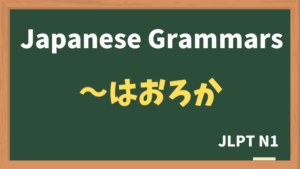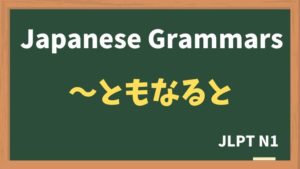
Explanation:〜といえども
fa-check-circleMeaning
"たとえ〜でも / いくら〜でも"
"Even if ~ / No matter how ~"
Used to introduce a contrast or concession, meaning "even though" or "even if." It implies that, despite a particular fact or condition, the expected outcome or general assumption does not necessarily follow. This expression is more formal and literary in tone compared to its more casual counterparts like "〜ても" or "〜でも."
fa-check-circleForm
V(plain form)+ といえども
イA(plain form)+ といえども
ナA(plain form)+ といえども
N(plain form) + といえども
fa-check-circlePoints
- Concessive Expression: "〜といえども" is used to introduce a situation where, despite a certain fact or circumstance, the outcome may not align with what is generally expected.
- Formal and Literary: It has a more formal tone and is often seen in written or formal speech, making it less common in everyday conversation.
- Surprising or Contrary Result: The clause following "〜といえども" usually describes an unexpected result or situation that contradicts what the previous condition might suggest.
fa-check-circleJLPT Level
N1
Sample sentenes
日本語の先生といえども、日本を間違えることはあります。
Even Japanese teachers can make mistakes in Japanese.
プロといえども、失敗することはありますよ。
Even professionals can make mistakes.
外国人といえども、日本にいるのだから日本のルールや法律に従わなければならない。
Even if they are foreigners, they must follow Japan's rules and laws since they are in Japan.
いくら安いといえども、偽物であれば買わない。
No matter how cheap it is, I won't buy it if it's a fake.
会社の社長といえども、社員を簡単にクビにすることはできない。
Even the company president can't easily fire employees.
Vocabulary
| Japanese |
English | |
| 従う | したがう | to follow |
| 偽物 | にせもの | fake |
| - | クビにする | to fire |






